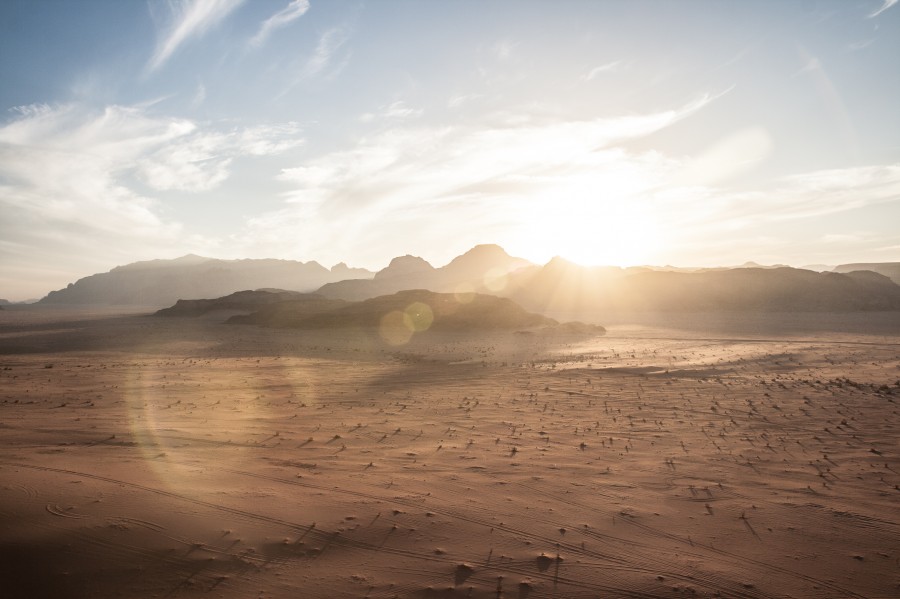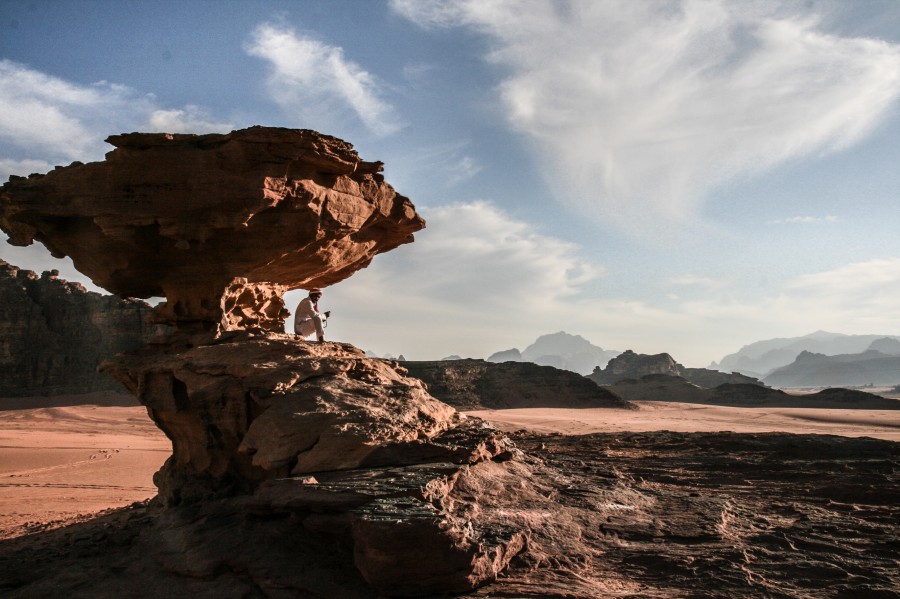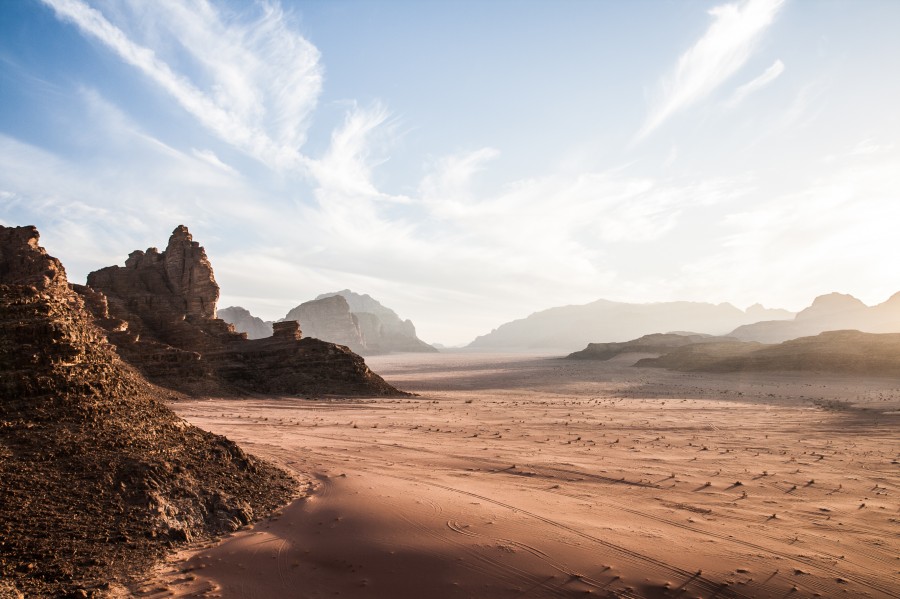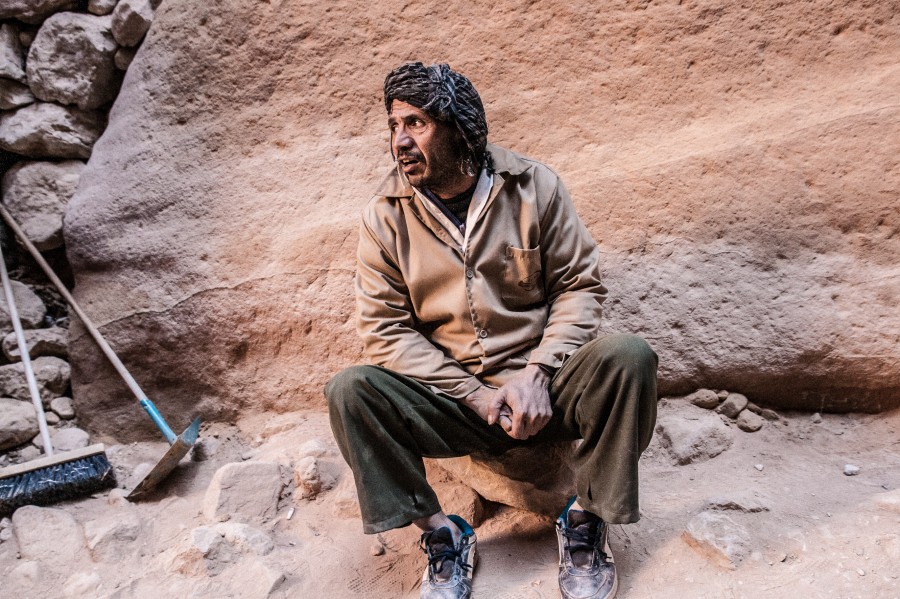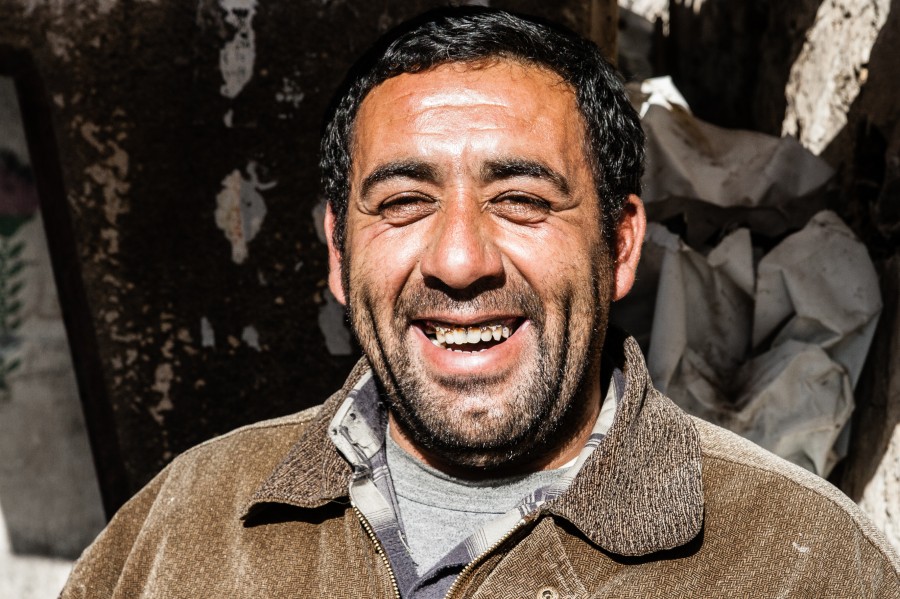War is primarily not about victory or defeat but about death and the infliction of death. It represents the total failure of the human spirit.
Robert Fisk “The Great War for Civilization”
Rico Grimm
text. social media. moderation. foto.
War is primarily not about victory or defeat but about death and the infliction of death. It represents the total failure of the human spirit.
Robert Fisk “The Great War for Civilization”
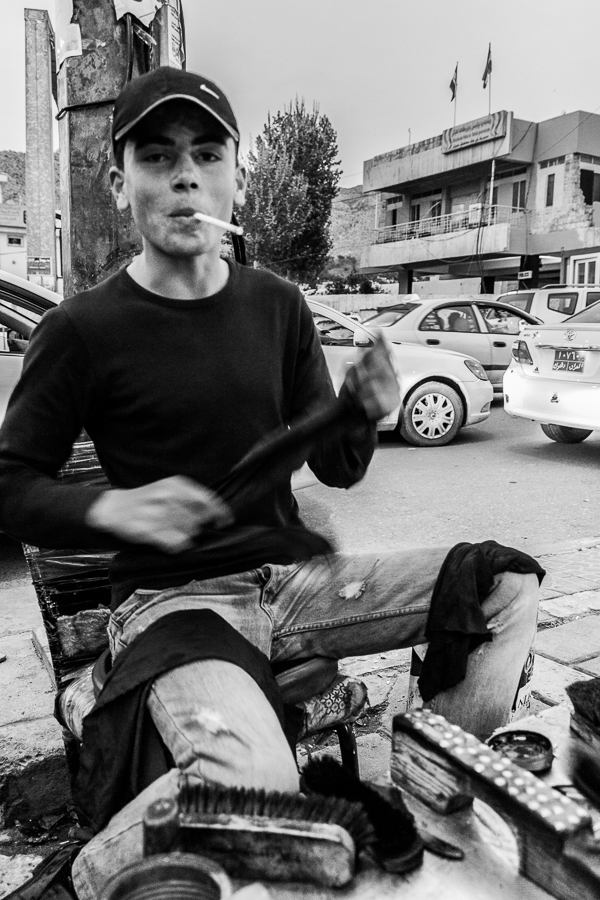
A Little shoeshine boy never gets low down
But he’s got the dirtiest job in town
Bendin’ low at the peoples’ feet
On the windy corner of the dirty street
Well, I asked him while he shined my shoes
How’d he keep from gettin’ the blues
He grinned as he raised his little head
Popped a shoeshine rag and then he said
Get rhythm when you get the blues
“There must never again be and there will never again be a November 1918 in Germany,” was his first political resolution after a great many political ponderings and speculations. It was the first specific objective the young private politician set himself and incidentally the only one he truly accomplished. There was certainly no November 1918 in the Second World War—neither a timely termination of a lost war nor a revolution. Hitler prevented both.
Let us be clear about what this “never again a November 1918” implied. It implied quite a lot. First of all the determination to make impossible any future revolution in a situation analogous to November 1918. Secondly—since otherwise the first point would be left in the air—the determination to bring about once more a similar situation. And this implied, thirdly, the resumption of the war that was lost or believed to be lost. Fourthly, the war had to be resumed on the basis of a domestic constitution in which there were no potentially revolutionary forces. From here it was not far to the fifth point, the abolition of all Left-wing parties, and indeed why not, while one was about it, of all parties. Since, however, one could not abolish the people behind the Left-wing parties, the workers, they would have to be politically won over to nationalism, and this implied, sixth, that one had to offer them socialism, or at least a kind of socialism, in fact National Socialism. Seventh, their former faith, Marxism, had to be uprooted and that meant—eighth—the physical annihilation of the Marxist politicians and intellectuals who, fortunately, included quite a lot of Jews so that—ninth, and Hitler’s oldest wish—one could also, at the same time, exterminate all the Jews.
Sebastian Haffner, “The Meaning of Hitler”
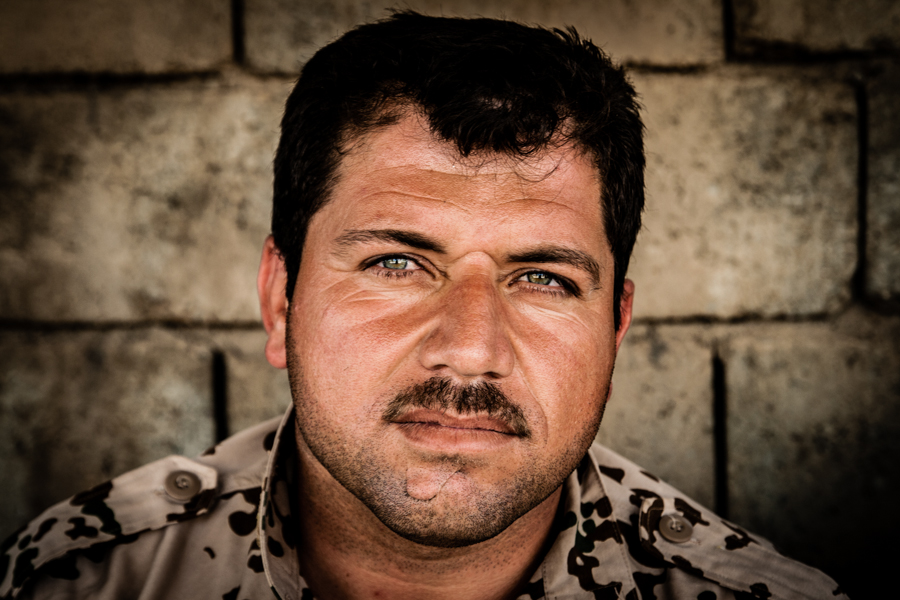
I met Halmat at a dusty bus station in the kurdish city of Koia. When the Americans started Operation “Enduring Freedom” to topple Saddam Hussein in 2003, he helped to liberate the city of Kirkuk. Today he works as a bodyguard of the deputy prime minister Kosrat Rasul, a former general, the “kurdish Che Guevara”, a living legend among the guerilla fighters of Kurdistan. Halmat is a Peshmerga, one of these guerillas.
Halmat speaks Kurd, Arabic and Fars. I do not speak any of his languages. Halmat showed me his duty pass on which all his credentials were printed in impeccable English – traces of the US-invasion. That’s why I know all this.
Route nach Sulaymaniyah, Irak auf einer größeren Karte anzeigen
Me and Halmat shared a cab from Koia to Sulaymania in the farther east of the Kurdistan Region. After we arrived, Halmat wanted to help me find a hotel but did not understand where I wanted to go. So, he handed me without saying a word his mobile phone. A man answered in German: “Hello? What’s up?” I heard a till ringing in the background. The voice on the other end of the phone gave us directions to the hotel. It belonged to Halmats brother who owns a shop in the German city of Aachen. The brother said finally: “Dude, I gotta run. The shop is full of customers. You know what Saturdays are like in Germany.” Oh yes, I know them.
But now, I too know what Saturdays are like in Kurdistan.
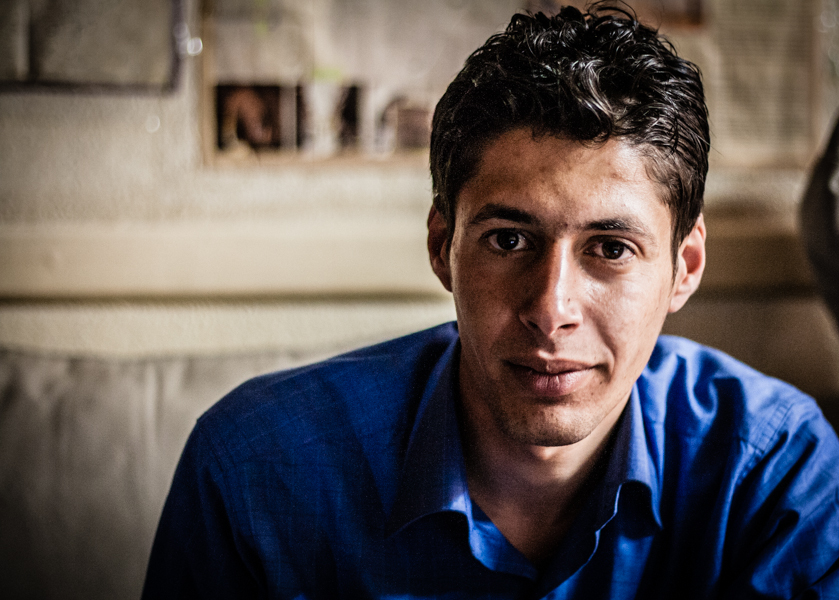
Azuz just laughed when I stepped into the smoky lobby of a hostel in Amman, Jordan. He made a comment about some actor I supposingly looked similar to. I had to join his laughter. Azuz was that kind of guy you like right from the beginning without knowing why.
He jumped in two large steps to the reception area, handed me a piece of paper to fill in my details. I wrote in the line of nationality “German”, he saw that and talked away. “Hallo, wie gehts? Wo kommst du her?” Berlin, Munich, he talked alot. But no, he has never been to Germany before. He taught that himself. He then conversed with a guy from Peru in Spanish, made a comment to an Italian girl in Italian and answered his phone in Arabic. I expected him in a moment to tell a joke in Suaheli.
Instead he told his story: He came to Jordan seven months ago with 5 Dinar, equalling maybe 8 Dollars, in his pockets. He was a student from Daraa in Syria, the town where the uprising began with a couple of Graffitis on the wall. He joined the first demonstrations. It was awesome, he says, we were strong and we had no fear. But the situation worsened.
Arriving in Amman he asked the supermarkets to give him a job. They gave him one and finally he got the offer to work in an environmental project that does fish research. He happily agreed and works there ever since. He loves that job alot. He did not even bother to attend a job interview with the refugee organisation of the UN he had been invited to.
And that might be a small, good sign. Because at home, in Daraa, he was studying veterinary medicine. His old life continues – at least a little bit.
Read further
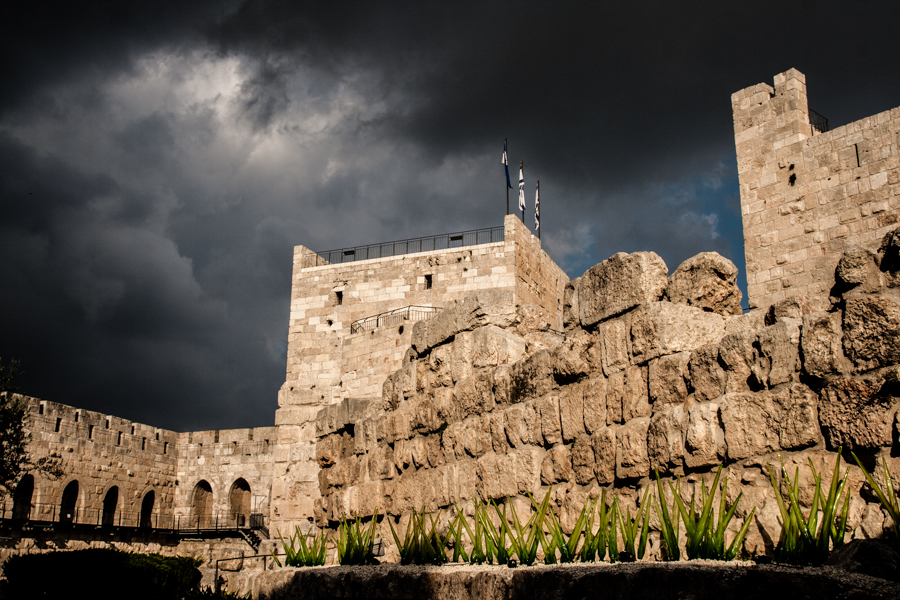
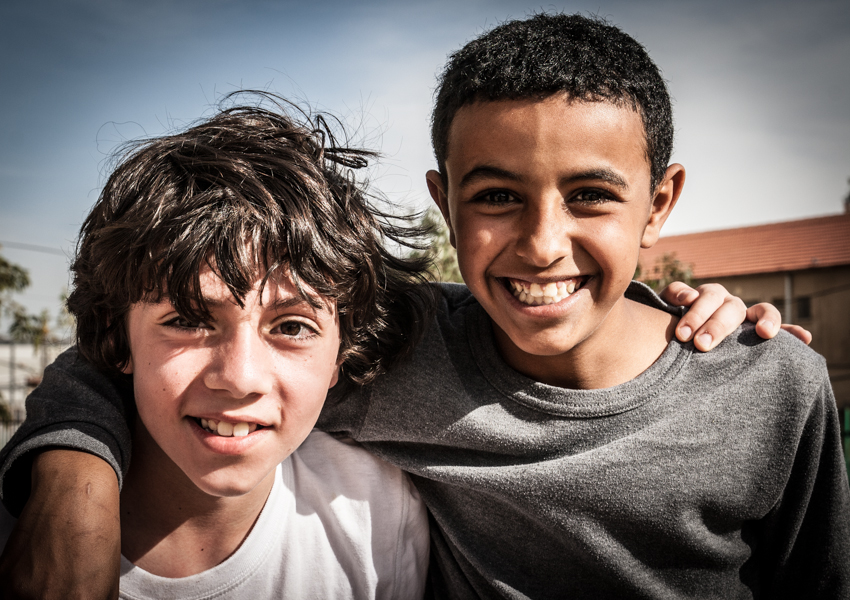
These are Itamar and Muthana. Itamar is a jewish boy and Muthana son of bedouins. They are best friends and attend the same class in a school in Be’er Sheva. That is special because the school system in Israel is segregated (like the rest of society). Schools like this are rare.
I am profiling Itamars and Muthanas school for a German kids magazine right now. I realised something interesting while writing the piece. Explaining this conflict on a kids level is actually really simple: “Two people, one home” like in “Two kids, one toy”. Even a reasonable solution is quite obvious on this basic level: “Share the home, share the toy.”
But explaining to a young audience why nobody solved the conflict yet if causes and solution are that well understood would be a tough call. Not only for me but the most knowledgeable scholars around, I guess. Is it because of a lack of talking to each other? A lack of venues to meet and exchange? A lack of good will?
It is a question of “process” in the end, of the path that leads from recognizing causes to reaching a solution.
That means for any iniative that is supposed to break this deadlock: If you cannot explain to a kid how you would go about it, you cannot explain it all.
It is bound to fail then.
Ideen, die die Welt entvölkern.
Saul Bellow, “Herzog”
Above all, do not lose your desire to walk. Everyday, I walk myself into a state of well-being & walk away from every illness. I have walked myself into my best thoughts, and I know of no thought so burdensome that one cannot walk away from it. But by sitting still, & the more one sits still, the closer one comes to feeling ill. Thus if one just keeps on walking, everything will be all right.
Søren Kierkegaard
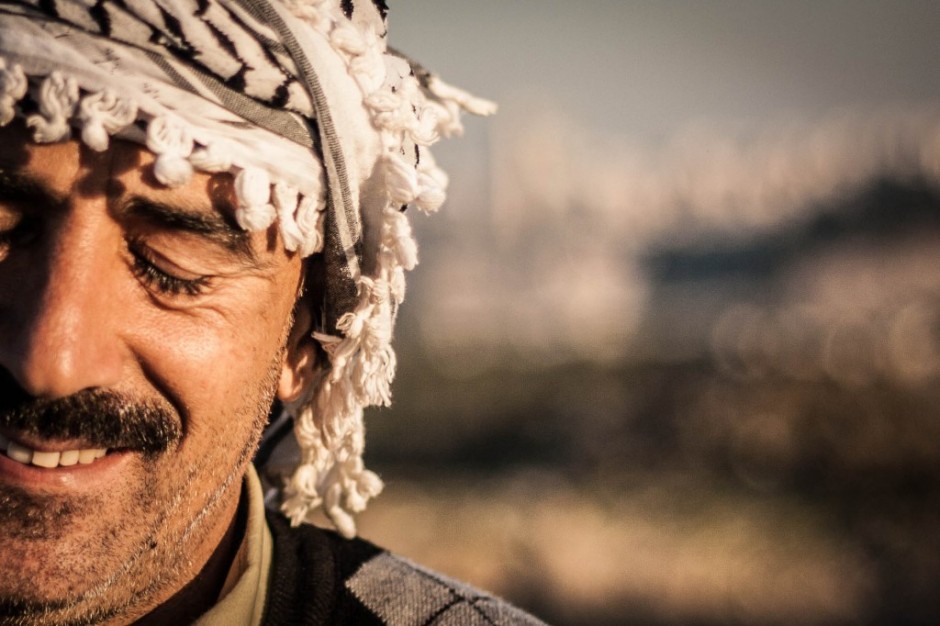
Said Yaqin, Head of Popular Struggle Comittee Beit Iksa, Palestinian Settler
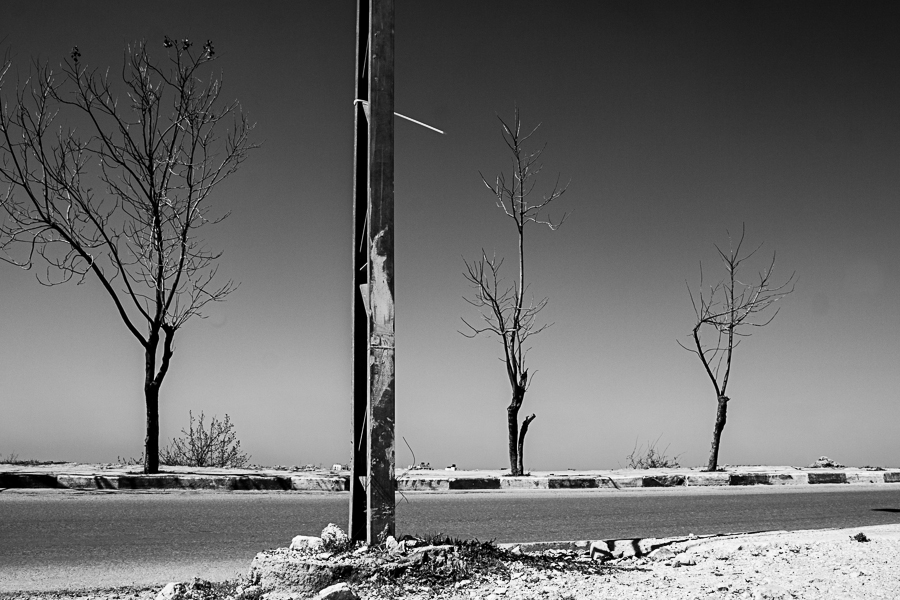

In einem See von Blut und Schmerz, abgemagert vor Angst und dünn vor Verantwortung, war ich trotzdem auf seltsam ferne Art glücklich.
Ernst Augustin, SZ-Magazin, 1.3.2012
While we in Germany cast 3rd-class-models in our TV shows, Arabs cast the “Prince of Poets”. Thats an awesome thing to do. In the video you see palestinian poet Tamim al-Barghouti turning himself 2007 into the rock star of his people with just one poem, recited in one tv show. Its title: “In Jerusalem”.
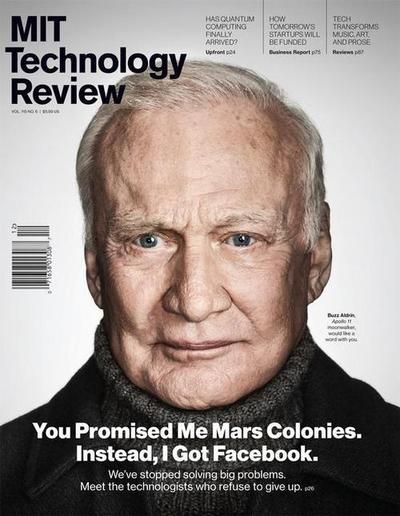
Usually, when you ask a young jewish Israeli what this and this holiday is about they do not really bother to give you the details but sum it up as follows: “Somebody try to kill us, they did not suceed, let’s eat.” This line explains alot of festivals. But on Purim it is different, somewhat. According to the bible somebody tried to kill them (the Persians), they did not suceed (thanks to Esther)… let’s drink until we are completely drunk, that’s a talmudic ruling. The whole nation from the liberal, secular neighborhoods of Tel Aviv to the ultraorthodox Jerusalem-quarter of Mea Shearim descends into a five-day-craze that is very similar to carnival in christian countries (who copied whom is not known). People dress up und you meet drunk Santa Claus, Zombies and Bees.
Wenn ich den Verstand verloren habe, soll’s mir auch recht sein, dachte Moses Herzog.
Saul Bellow, “Herzog”, erster Satz
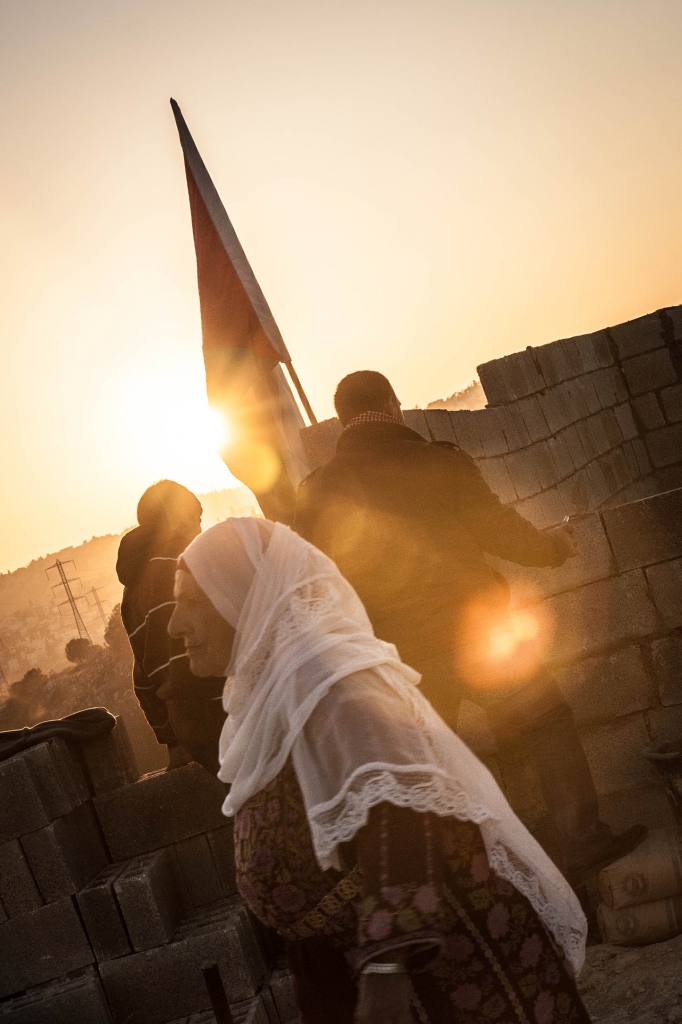
The palestinia protest village of Bab Al-Karama, Beit Iksa, January 2013. Two men in the background are building the provisional mosque.
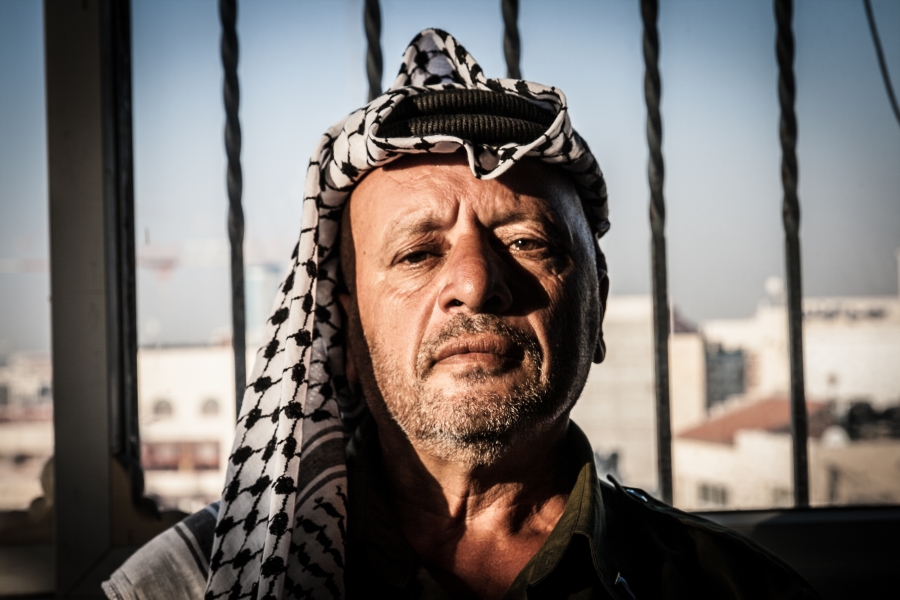
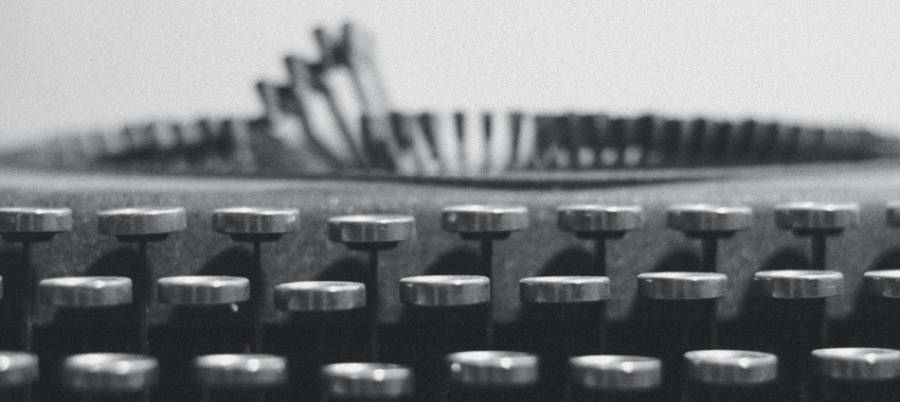
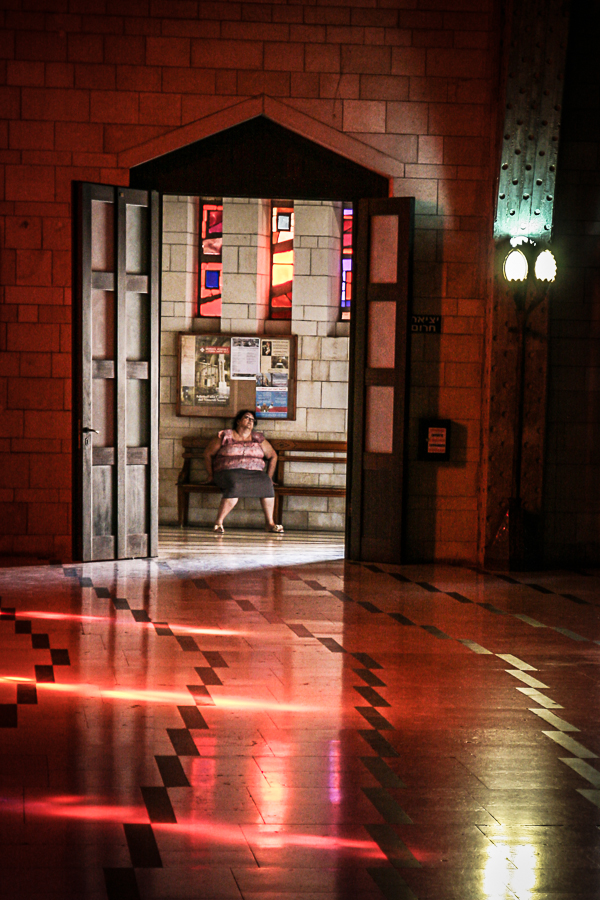
Power is a lot like real estate. It is all about location, location, location. The closer you are to the source the higher your property value.
“House of Cards” S01 E01
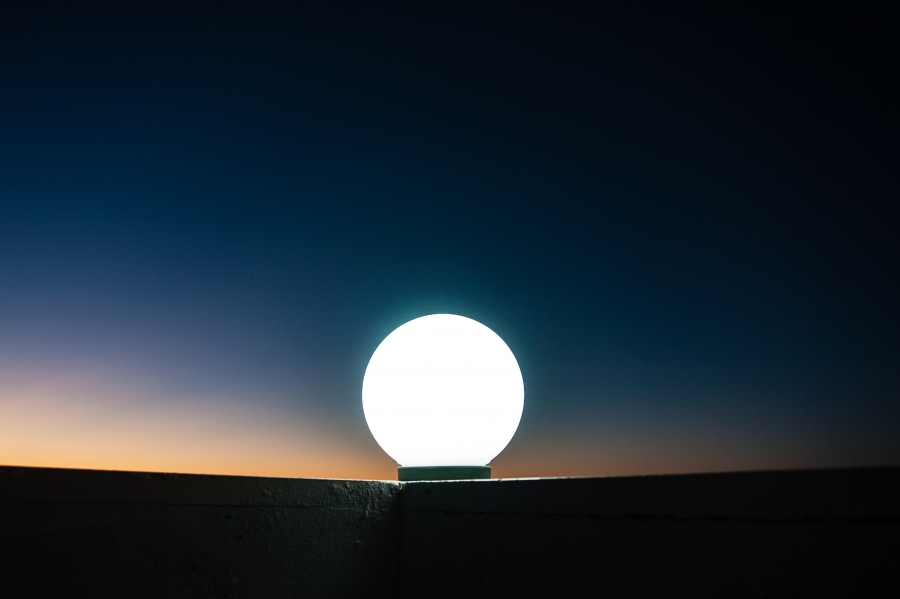
I wanted to take a picture of Wadi Musa in Jorda during sunset. However, the setting was rather unispiring. Then, I discovered this lamp and the longer I looked at it the more strange it seemed to me in this oriental place. It remembered me of Bauhaus-Design, neat, stylish. So I tried to fuse the heat of the Desert with the coolness of Bauhaus in this picture.
Unpassende Vergleiche sind schlimmer als Hitler.
Gerd Buurmann
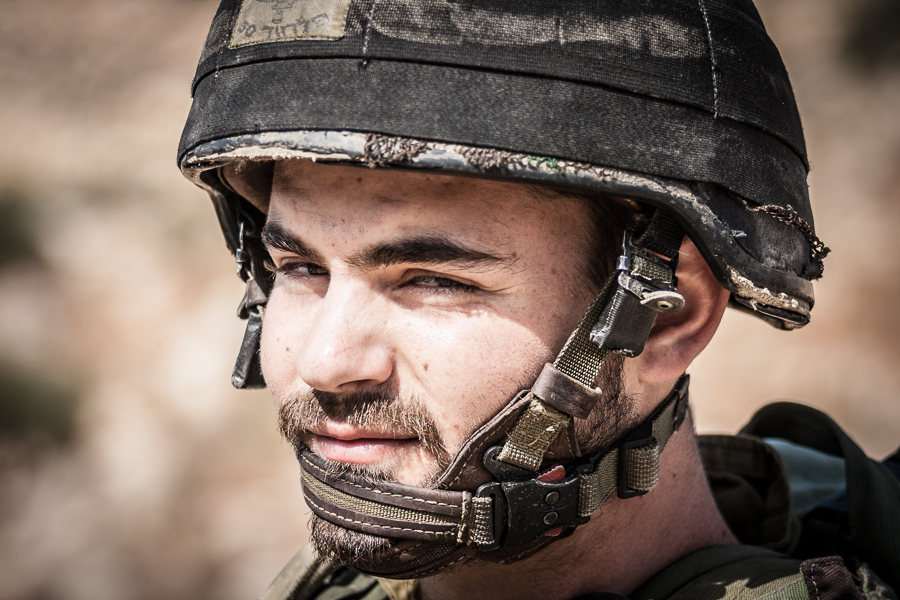
One of the soldiers we encountered at the Olive Tour, caught my attention because he looked like a big boy with a gun. He was born in Chicago and described his job in the West Bank as follows: “I protect the settlers from the Palestinians and the Palestinians from the Settlers.”
Hat Tip: While I was busy taking pictures and keeping my distance Vanessa just started talking to the soldier – and shared his story afterwards. Danke!You have to make peace with your neighbours – not their government.
Guy I interviewed today
Photojournalism Behind the Scenes [ITA-ENG subs] from Ruben Salvadori on Vimeo.
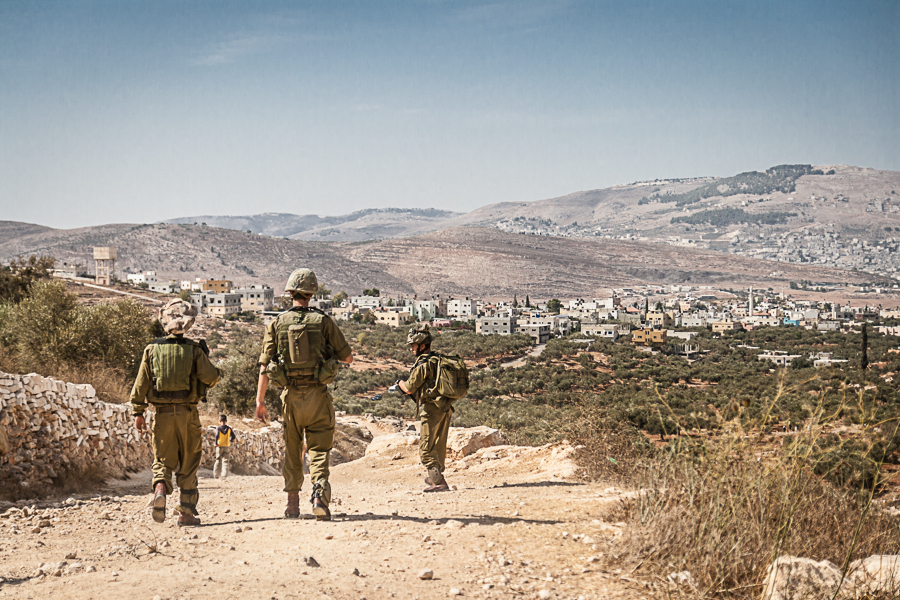
A commander or an officer sees a camera and becomes a diplomat, calculating every rubber bullet, every step. It’s intolerable, we’re left utterly exposed. The cameras are our kryptonite.
An Israeli soldier serving in the West Bank
Landscapes, in childhood’s dream, were so vast and silent. We looked backward through our memory for the prototype upon which all men had walked, between walls, toward such an open square as that in front where the road seems to end.
T. E. Lawrence (Lawrence of Arabia) describing Wadi Rum
Greeting me sternly, [Lloyd George] remarked that complaints of me were reaching him from Jews and Arabs alike. I answered that this was all too probable, imagining for a moment from his tone that he was leading up to my resignation. “Well”, he said as we sat down, “If either side stops complaining, you’ll be dismissed.
Sir Ronald Storr, britischer Gouverneur von Jerusalem in den 1920er Jahren
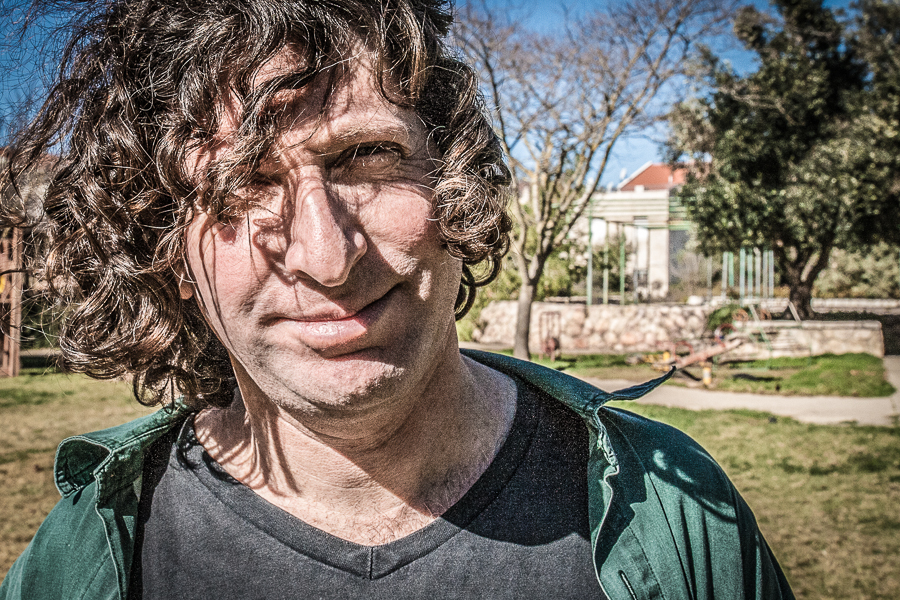
This is Eliaz Cohen, a remarkable man. A religious poet, a settler, a leftist. He was the reason I went to Kfar Etzion: I wrote a portrait of him for Zeit Online. My favorite poem of him:
SNOW
Snow on bleeding Jerusalem
as though bandaging her wounds
all rests in tranquility now
filling the cracks of yearning in the Wall
children in your streets, Jerusalem
the sons of Isaac and Ishmael
are staging white wars
(and their blows are soft)
even the pigeons are hurrying today
cooing because they have found new footprints
on the way leading up to the Gate of Mercy
Ich bin doch nicht auf der Wurstsuppe hergeschwommen!
Mein alter Deutschlehrer
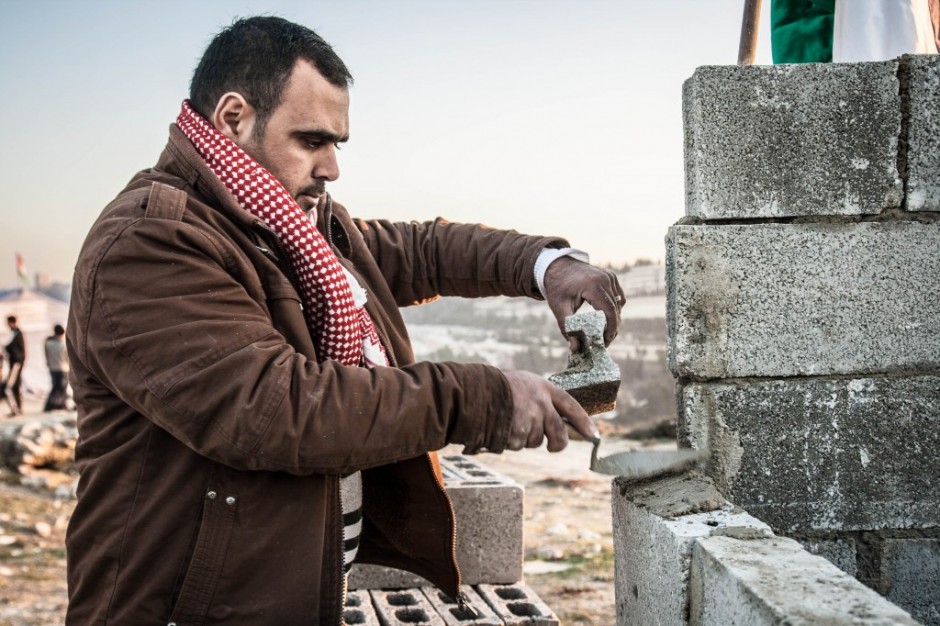
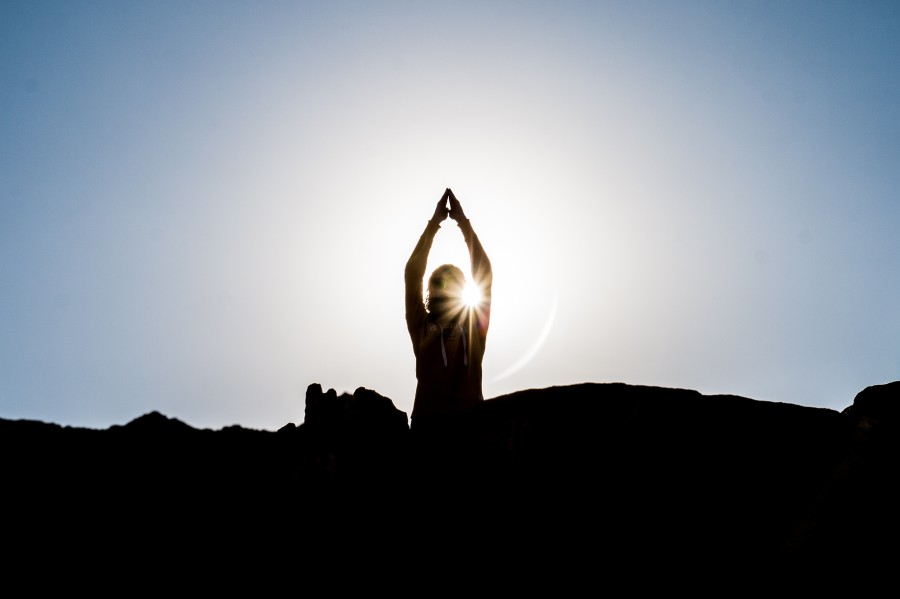
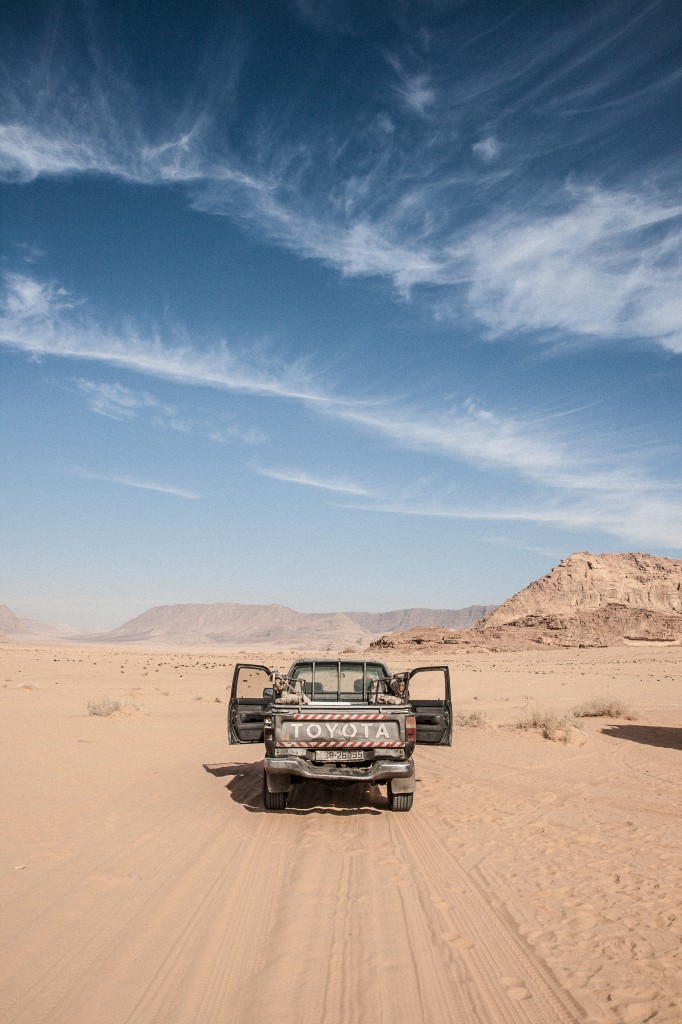
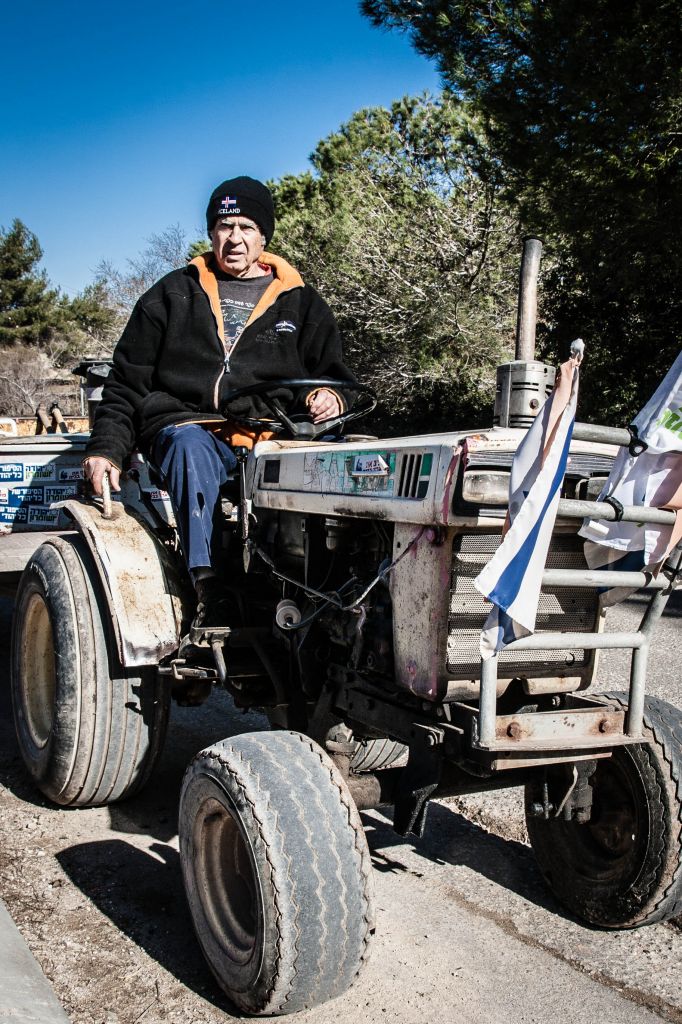
Wenn Sie ein Gedicht suchen, werden Sie scheitern. Ein Gedicht muss zu Ihnen kommen.
Mein alter Deutschlehrer
Three step guide to photography: 01: be interesting. 02: find interesting people. 03: find interesting places. Nothing about cameras.
Life is short, German words are long. Choose wisely.
Once you retire from the service, you become a bit of a leftist.
Yaacov Peri, former chief of Shin Bet, the Israeli domestic secret service that is responsible for the Palestinian territories. Quote from the documentary “The Gatekeepers”.
Much writing today strikes me as deprecating, destructive, and angry. There are good reasons for anger, and I have nothing against anger. But I think some writers have lost their sense of proportion, their sense of humor, and their sense of appreciation. I am often mad, but I would hate to be nothing but mad: and I think I would lose what little value I may have as a writer if I were to refuse, as a matter of principle, to accept the warming rays of the sun, and to report them, whenever, and if ever, they happen to strike me.
E. B. White
This song is the soundtrack from the Israeli movie “Fill the void”. It’s refrain is based on the bible: Continue reading “Beautiful.”
If your government shuts down the internet, shut down your government.
